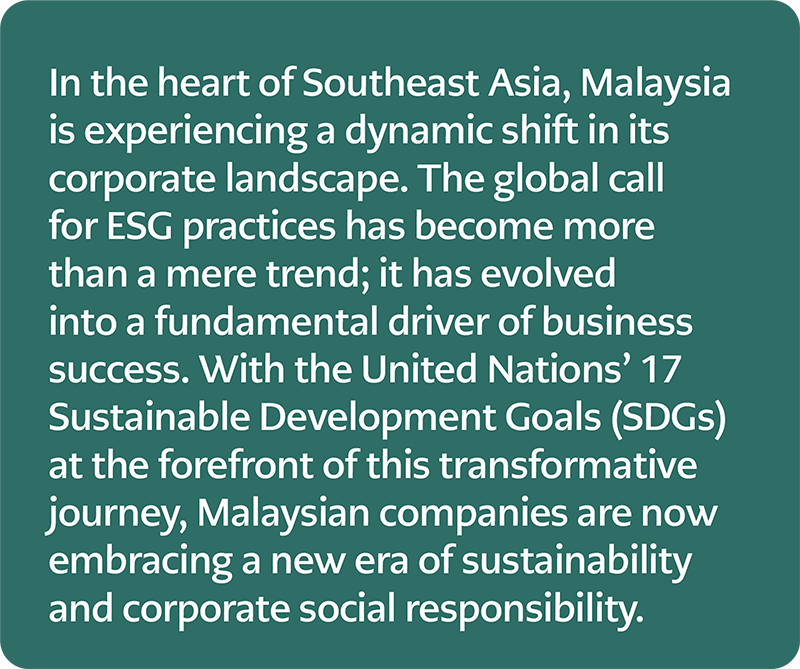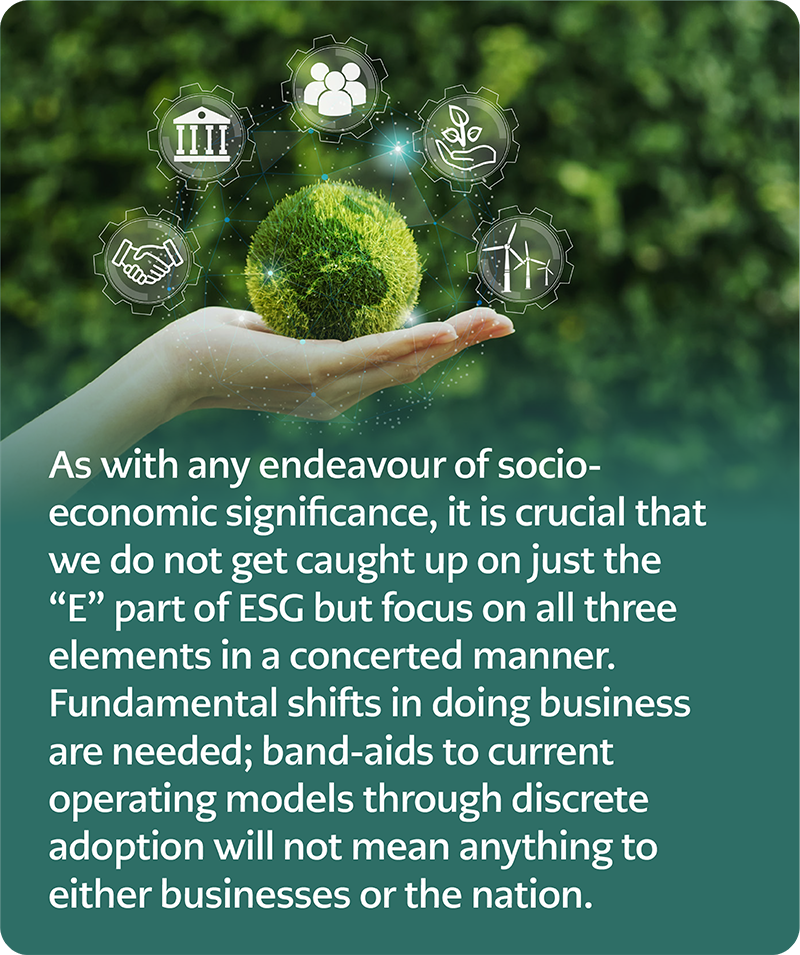

Small and medium enterprises (SMEs), the backbone of Malaysia's economy, cannot afford to be left behind in this era of sustainability. Embracing carbon transition targets and transforming employment models to eliminate modern-day slavery is not just an option; it is an imperative for these businesses.
Failing to do so could result in their exclusion from the global supply chain in the near future. The sustainable supply chain and adopting a circular economy mindset, focusing on resource efficiency and re-utilisation, are pivotal to ensuring business resilience in Malaysia's evolving business landscape.

Access to finance and green incentives will play a vital role in facilitating the inclusion of SMEs in the sustainable global supply chain. It is essential that both private and public financial institutions recognise the importance of extending support to SMEs on their sustainability journey.
Malaysia has a significant role to play in making this transition accessible and advantageous for its small and medium-sized enterprises. Let's delve deeper into these essential elements of Malaysia's ESG landscape.


